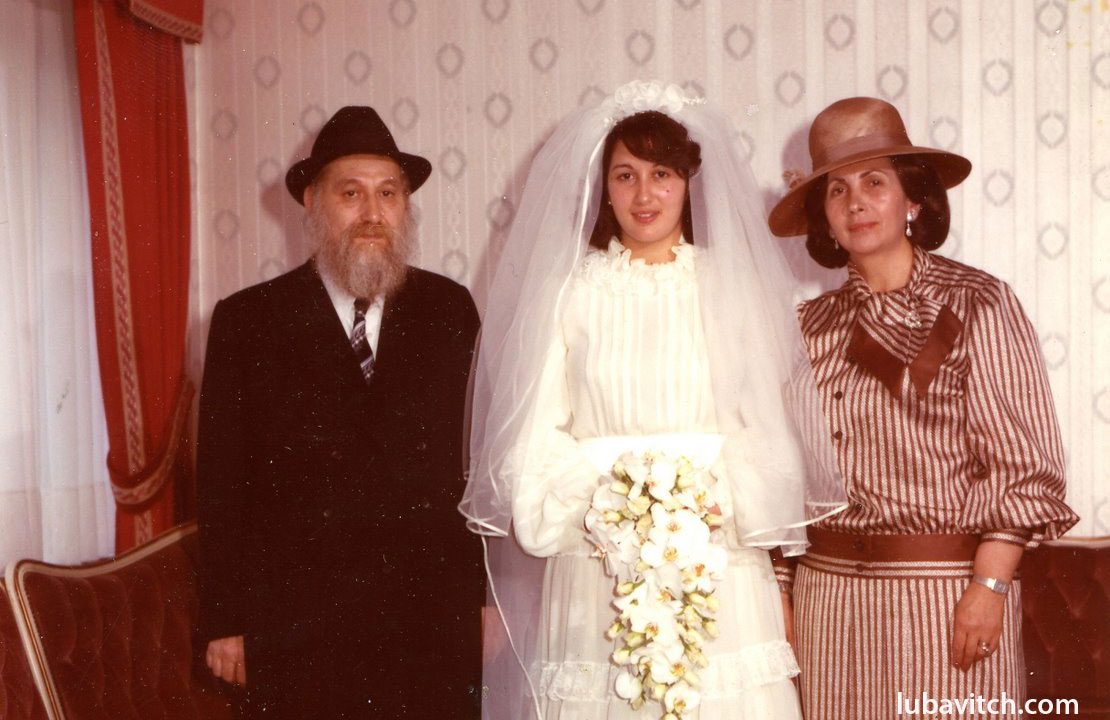(lubavitch.com) Rebbetzin Batsheva Silberstein, a pioneering member of the Chabad-Lubavitch community in Antwerp, Belgium, who fought on behalf of Soviet Jewry for many years, passed away Saturday, November 6 after a lengthy illness. She was 80.
Daughter of Moshe Zalman and Rishe Kamenetsky, Batsheva was raised in the shtetl of Klimovichi in Belarus. Once a Chasidic stronghold, Klimovichi was targeted by Soviet purges and oppression that sent the shtetl’s once vibrant community underground.
When Batsheva was a child, the family moved deep into Russia, far from the watchful eye of the Kremlin. Even in this remote location open observance of Jewish rituals was risky. When the local school held classes on Shabbat, Batsheva’s parents would find excuses to keep her out of class. Soon, however, school officials became suspicious of Batsheva’s regular Staurday absences, forcing her to attend these classes. In order to avoid breaking the Shabbat, during which writing is prohibited, Batsheva would come to class with her writing hand bandaged.
Life was not easy for the Kamenetskys. Moshe Zalman was forced to take on multiple jobs to provide for his family. As a teenager Batsheva contracted shingles and was sent to a hospital some distance from home. Before she left, Batsheva was instructed by her uncle, the renowned chasid Rabbi Yisroel Levin (also known as Reb Yisroel Neveler), that because her life was at risk she was permitted to eat any food offered to her in the hospital, even if it was not kosher. Despite this dispensation, Batsheva refused to let non-kosher food cross her lips, much to the consternation of her doctors.
During those dark days, Batsheva sought solace and strength from her rich heritage and upbringing. The image of her father rising early in the morning to don tefillin behind a haystack in the back of a synagogue was one she carried with her at all times. Years later she would share with her community in Antwerp fond memories of her family’s unwavering commitment to Judaism in Soviet Russia, and how this determination inspired other Jewish men and women to remain true to their faith.
Following the Nazi invasion of Poland in 1939, thousands of Polish Jews fled into the Soviet interior, and it was not until 1945, with the war’s end, that displaced Polish citizens were permitted by the Soviets to return to their homeland. Hundreds of Chabad Chasidim, the Kamenetskys among them, took advantage of this softening of Soviet policy. Under the guidance of legendary chasid Rabbi Mendel Futerfas and others they managed to cross through the Ukrainian border town of Lviv in 1946.
The Kamenetskys ultimately moved to Israel, where, in 1949, they joined the first group of Russian émigrés to settle the village of Kfar Chabad, which had recently been established by the Previous Lubavitcher Rebbe, Rabbi Yosef Yitzchak Schneersohn. In 1952 Batsheva was introduced to Rabbi Shmuel Meir Silberstein, a student of the famed wartime yeshiva of Rabbi Zalman Schneerson. The two married and shortly thereafter moved to Rabbi Shmuel Meir’s hometown of Antwerp.
Although she enjoyed the benefits of Antwerp’s large Jewish community and religious freedom, Mrs. Silberstein never forgot the hardships of life for Jews in the Soviet Union. She became active in providing for the physical and spiritual needs of her brethren still behind the Iron Curtain as well as recent emigres seeking political asylum in Western Europe. In the 1960s she founded an organization to provide relief for Soviet Jewry. She single-handedly raised hundreds of thousands of dollars to send packages with much-needed humanitarian supplies. A devoted follower of the Lubavitcher Rebbe, Rabbi Menachem Mendel Schneerson, of blessed memory, Mrs. Silberstein often turned to him for advice in her work. Indeed, Mrs. Silberstein continued to speak to the Rebbe in private audience long after the Rebbe had ended the practice for the general public.
To her children, Mrs. Silberstein is best remembered as someone entirely dedicated to helping others. Her son, Rabbi Eli Silberstein, Director of Chabad of Ithaca, relates that “the words ‘I tried my best’ did not exist in her vocabulary. She wouldn’t rest until the needs of the person she was helping were entirely met.”
Even as Mrs. Silberstein’s health began to fail in her later years, she remained positive.
“My grandmother was an incredibly strong woman,” Esther Silberstein relates. “There were so many things in her life that would have made others bitter – but she remained resolute in her commitment to her family and community.”
Mrs. Batsheva SIlberstein was interred in Israel. She is survived by her husband, Rabbi Shmuel Meir Silberstein, her children, Mrs Risha Slavatici, Chabad-Lubavitch emissary to Antwerp, Rabbi Eli Silberstein Chabad-Lubavitch emissary to Ithaca, NY, Mrs Masha Vogel Chabad-Lubavitch emissary to Rochester, NY, Zelig Silberstein of Antwerp, and many grandchildren and great-grandchildren. Mrs. Silberstein’s son Yossi Silberstein of Montreal passed away in 1996.

Be the first to write a comment.